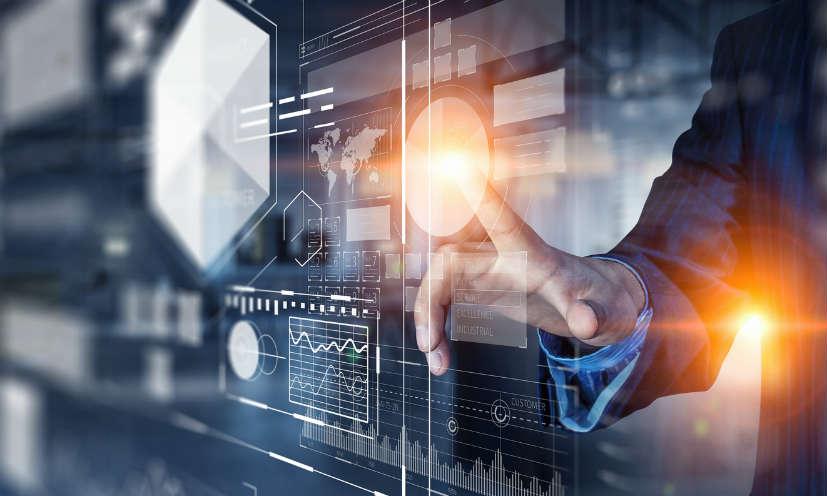Discussions will focus on how the technological developments will shape the future of Europe and building a strong Digital Single Market with increased investment and digital skills is crucial.
After last year’s Digital Day in Rome that triggered successful cooperation in areas such as high-performance computing, connected mobility and the digitisation of industry, the Commission is repeating the initiative to encourage more cooperation on digital issues.
Within a year, major progress has been made towards a Digital Single Market. The end of roaming charges and the portability of online content are now part of the lives of Europeans. Stronger rules on the protection of personal data and the first EU-wide rules on cybersecurity will become a reality in May 2018.
Many proposals still need to be agreed. Europe should move forward, and building on the Digital Single Market, increase investments and foster cooperation in a series of key areas such as artificial intelligence, blockchain, eHealth and innovation.
Andrus Ansip, Vice-President for the Digital Single Market, said: “Europeans are starting to feel the benefits of the Digital Single Market on the ground. They can now travel across borders with their favourite video and music streaming services – and with no roaming charges. Soon geoblocking when shopping online will be a distant memory. Our personal data will be better protected as of 25 May. This year’s Digital Day is the perfect moment to recognise what we have achieved but to also encourage EU Member States to move forward quickly with the legislative proposals still on the table. We need to prepare our digital future together; we need to do more, joining forces and resources to grasp the opportunities offered by technologies such as artificial intelligence and blockchain.”
Mariya Gabriel, Commissioner for the Digital Economy and Society, said: “Digitalisation is transforming our society and we can reap its full benefits only through close and fruitful cooperation. Coordinated EU-level commitment and investments are much needed to tackle the challenges ahead. I expect Digital Day 2018 to bring the digital cooperation in Europe to a new level regarding artificial intelligence as well as eHealth, and I encourage all EU Member States and stakeholders to contribute to our efforts to keep Europe a global player in the digital age.”
Highlights of Digital Day 2018 include declarations aimed at:
- Joining forces on artificial intelligence (AI): AI can bring major benefits to our society and economy, such as better healthcare, safer transport and a more competitive industry. To fully benefit from the opportunities offered by AI, European countries need to work together, including for using the highest standards of data protection. The Commission will adopt a Communication on AI in the coming weeks.
- Building a European partnership in blockchain technologies: The European Commission recently launched the EU Blockchain Observatory and Forum in February 2018 and will invest some €300mn in projects supporting the use of blockchain. At the same time Member States have been very active in supporting blockchain ecosystems, launching experiments and announcing actions at the government level. In order to harness the many opportunities of blockchain and avoid a fragmented approach, tomorrow the Commission will lay the groundwork for establishing a European Blockchain Partnership to promote interoperable infrastructures that will enhance trusted digital services.
- Sharing data to personalise healthcare:Citizens’ needs are at the centre of data-driven healthcare innovation and should have an active role in their personalised treatment. The eHealth declaration aims at linking access to existing and future genomic databases across the European Union which will help to advance research in rare diseases, cancer, pharmacogenomics, disease prevention, brain related diseases and other conditions. Enhanced cooperation between Member States will help to overcome lack of interoperability and fragmentation of initiatives across the EU, while guaranteeing highest European standards for personal data protection. This will also keep the EU at the forefront of personalised medicine globally, fostering scientific output and industrial competitiveness.
- Encouraging innovation with the help of a new online tool: The Innovation Radar can help match innovators with those who can help get their innovations to market. During Digital Day 2018, the Commission encourages the cooperation for supporting breakthrough innovations in Europe. The initiative also aims to develop the online tool further and enrich it with top national innovation projects.
- 5G cross-border testing corridors to support connected and automated mobility: A first set of large-scale testing corridors was announced in September 2017. Tomorrow, Spain and Portugal will sign a Memorandum of Understanding to kick-start their cooperation.
Background
During Digital Day 2017, the focus was on five initiatives:
- Ministers signed a declarationto establish Europe as a global player in high-performance computing, which led to accelerated European cooperation on supercomputers with the EuroHPC Joint Undertaking in January 2018.
- 29 European countries signed a letter of intentto establish, together with the Commission, a legal framework for cross-border trials in connected driving, which led to several large-scale testing corridors being announced in September 2017.
- The Commission launched a European platform on digitising industryto connect national initiatives; it helped develop a network of Digital Innovation Hubs across Europe and encourage public-private cooperation.
- The Commission initiated the Digital Opportunities traineeship programme, which led to the launch of the cross-border traineeship initiative in December 2017. The first traineeships are expected to start this summer.
The Commission presented an updated European Interoperability Framework, which was enshrined in the eGovernment Ministerial Declaration in October 2017 and is considered as the roadmap for the digitalisation of public administrations.

